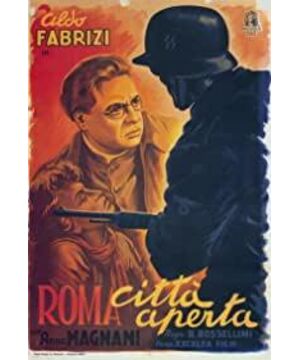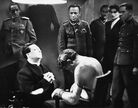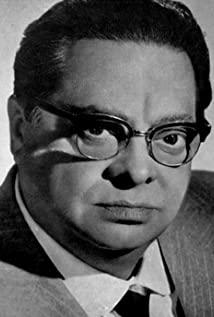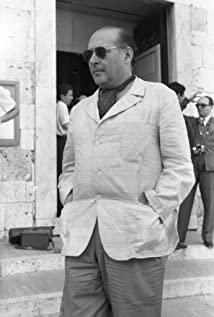As the pioneering work of Italian neorealism, Rossellini made this film with live-action, non-professional actors, natural light and all the anti-traditional filming methods. Cities, streets, and houses devastated by the war are presented in the lens like a documentary. At that time, the cinemas were filled with Hollywood’s innocuous positive energy films and political films that became tools for fascist propaganda. new possibilities. The film bible "What is Cinema", written by French "Cinebook" founder Andre Bazin, spends a lot of time studying and analyzing Italian neorealist films. Among them, the long-shot theory is practiced by many filmmakers. The status of "Rome, the Undefended City" in film history needs no further elaboration.
The story is a typical heroic tragedy. In 1944, Rome was occupied by the Nazis, and Memphidi, a member of the underground resistance group, was wanted by the German army. He then fled to his friend Francisco's house to avoid capture. Francisco's fiancee, Bina, introduces Manfidi to the priest. The priest worked hard to protect the members of the underground organization he took in and took care of the elderly and seriously ill. Due to the financial constraints and lack of food, the priest also had to snatch the food and bread distributed on the street. Under the ravages of the war, the priest who represented divinity had to return to human nature. In a Nazi raid, Francesco and Manfidi were arrested, and Bina desperately chased the Nazi military vehicle and shouted the name of her fiancé, only to be brutally shot by the Nazis. On the way to the escort, the underground organization attacked the Nazi military vehicle. During the chaos, Francisco and Manfidi managed to escape. The two took refuge at the home of Manfidi's girlfriend. But his girlfriend is a morphine addict. She betrayed her boyfriend out of the temptation of money and told the Nazis the time and address of the secret handover between Manfidi and the priest. In the end, Manfidi and the priest were arrested and imprisoned. The Nazis tortured Manfidi in front of the priest. Manfidi did not tell the location of the underground organization, and was eventually tortured to death. The priest watched the dead Manfidi curse and condemn the anti-human atrocities of the Nazi officers under the holy light of justice. In the end the priest was killed...
The story of this film and the handling of the torture scenes and the final trial of the priest also provided a lot of reference elements in artistic expression for a large number of later films about the heroic sacrifice of national heroes in the war. While tortured and tortured Manfidi, one of the Nazi officers in the room was drinking and mumbling his reflections on the war, which was a little didactic and redundant.
View more about Rome, Open City reviews











